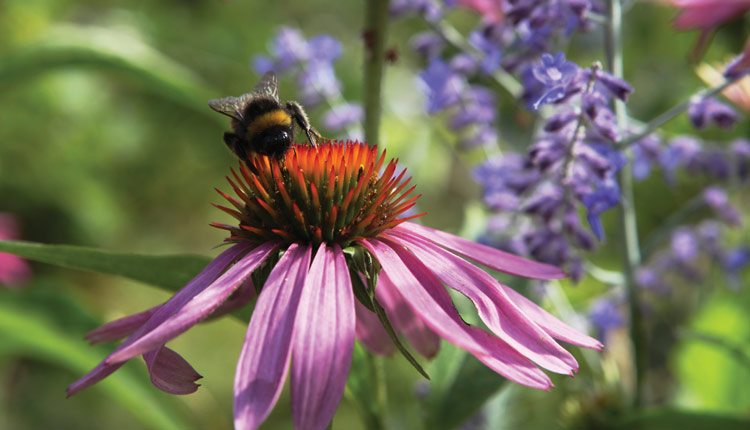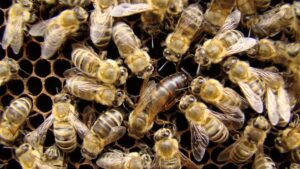New initiatives at all levels encourage the creation of habitat to support pollinators.
On June 3, more than 20 organizations concerned about pollinators teamed up to form the National Pollinator Garden Network and launch the Million Pollinator Garden Challenge, a new nationwide campaign.
This campaign is designed to accelerate the growing efforts across America and support President Barack Obama’s call to action to reverse the decline of pollinating insects. To help support the campaign, First Lady Michelle Obama has dedicated a section of the White House garden to habitat that supports pollinators.
The challenge: to rally hundreds of thousands of gardeners, horticultural professionals, schools and volunteers to register 1 million pollinator gardens during the next two years to help revive the health of bees, butterflies, birds and bats across America. Every habitat of every size counts, from window boxes and garden plots to farm borders, golf courses, corporate and university campuses.
Individuals or companies that already have a pollinator garden can register their site online, share.pollinator.org, and count toward the 1 million pollinator gardens.
Almost all experts agree one of the major health factors facing honeybees is a lack of forage areas. With the world population expected to grow to more than 9 billion people, food will need to double by 2050. This means bees need more food to help pollinate all these crops.
Among the supporting organizations is the American Seed Trade Association, which has been active in national pollinator discussions, and the National Garden Bureau.
“Bees are vital in seed and agricultural production, as well as general ecosystem health, and ensuring their wellbeing is a priority,” says Andy LaVigne, ASTA president and CEO. “ASTA’s diverse membership includes companies with expertise in the production of seed for pollinator forage and health. We look forward to working in tandem with the White House and members of the National Pollinator Garden Network to increase the outreach and education of this important initiative.”
The National Pollinator Garden Network is also comprised of America in Bloom, Home Garden Seed Association, Lady Bird Johnson Wildflower Center, National Environmental Education Foundation, National Recreation and Park Association, National Wildlife Federation, Pollinator Partnership and the U.S. Department of Agriculture’s People’s Garden, among others.
Help Pollinators Pollinate
Complementing the national effort, Bayer CropScience earlier this year launched its Feed a Bee campaign. To date, more than 200,000 people have pledged to help feed bees by planting 50 million flowers in 2015, according to the company.
Through the campaign, Bayer has secured more than 30 collaborators who have committed to plant thousands of acres of bee forage, and Bayer’s Bee Health team continues to work toward its goal of engaging 50 groups to create bee habitats across the country.
Bayer has been registering individuals to register on www.FeedABee.com and commit to planting bee-attractant plants on their own or they can opt to have the Feed a Bee initiative plant seeds for them.
Additionally, Syngenta has been working on this issue through Operation Pollinator, an initiative that’s been working to feed bees and protect the environment for more than 10 years. Operation Pollinator is an international biodiversity program to boost the number of pollinating insects on commercial farms.
In 2014, the company worked with Delta F.A.R.M., which committed to establish at least five Operation Pollinator plots throughout Northwest Mississippi, with plans to grow the program annually through 2016 on more fields and farms.
Leaders at Syngenta have also been coordinating research efforts with the University of California, Davis, Michigan State University and the University of Florida. In the golf sector, Operation Pollinator has already been incorporated into more than 50 commercial golf courses across 20 states.
Stay tuned as Seed World will continue to track the pollinator issue and industry efforts to address it.











